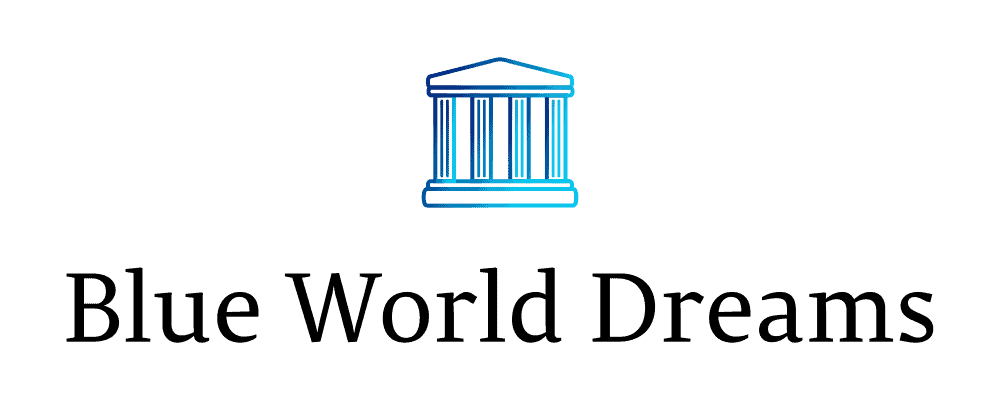12 Finance Tricks To Building Your Personal Wealth
Taking control of your personal finances can lead to greater financial freedom.
Growing up, my family practiced simple but prudent money management habits.
My parents worked hard, tried to avoid debt, and put everything towards paying off their mortgage early.
I realized first-hand the importance of living within your means, the value of every dollar, and how to stretch what you have.

Next, we’ll go through 12 simple strategies, from making a realistic budget and building an emergency fund to finding ways to save on the sly.
Whether starting out or optimizing an existing money plan, implementing even a few helpful tips can help strengthen your financial foundations.
Let’s take a look at some of my favorite personal finance lessons!
Practical Finance Tricks
1. Value Every Dollar
While this may seem obvious, valuing your money is the most crucial finance tip.
In theory, most people know how hard it is to earn their paycheck but often forget all that hard work when spending their income.
When I began working at 15 as a shoe salesman, the minimum wage was around $7/hour.
Almost everything I bought came down to “How many hours do I need to stand to pay for this?”.
Was that $40 shirt worth almost 8 hours of my efforts, or could it be used better?
Take the time to evaluate the cost of something versus the effort it takes to afford it.
You will soon find yourself cutting back on purchases you don’t really need to make.
2. Budget, Budget, Budget
Did someone say Budget? Yep, there is, unfortunately, no way around this often scary word when dealing with finances.
Look at it this way: knowledge is power.
Without the knowledge of how you actually spend your money, how can you make the necessary changes to achieve your financial goals?
People often think that if they sit down and make a budget, they will have to stop spending altogether.
The goal is not to prevent all forms of spending, but you should strive for responsible financial habits.
Although we all have expenses in our lives, and many are unavoidable, we can often still trim the fat in certain areas of our lives.
While the amounts will vary, most of us have similar fixed expense categories.
Our flexible expense categories will showcase more of our personal spending preferences.
Some common expense categories:
Recurring Expenses
- Mortgage/Rent
- Car/Transportation expenses
- Home, Car, Medical Insurance
- Utilities, Bills (Electric, cellphone, etc.)
- Groceries (can also fall under variable expenses to a certain degree)
Variable Expenses
- Travel
- Entertainment (Movies, Concerts)
- Restaurants & Alcohol
- Shopping (Beauty, Clothing)
- Miscellaneous (Hair & Nails, etc.)
One of the first tips I give friends and family members who ask for financial guidance is to print out a few months’ worth of their checking accounts and credit card statements.
I have been doing this activity periodically for over two decades, which always puts my spending habits in perspective.
Grab a couple of highlighters and highlight all the fixed expenses in one color and all the flexible expenses in another.
Seeing is believing.
Only when you start to see your financial statements light up in color and realize where your income is going will you be ready to start making changes!
Once you have that data, you can see which areas need improvement.
If you previously ignored your savings accounts, make sure that’s the first category to get some love after paying your fixed expenses.
Make a plan for the upcoming month, setting limits for yourself in each category of expenses you have.
Some minor, easy cuts to look out for;
Some small, easy cuts to look out for;
- If you spend $10/day on lunches for work, try packing a lunch for yourself twice a week for the upcoming month. Go up to three times a week the following month.
- If restaurant/coffee shop expenses amount to $300 of your monthly expenses (which I often see among friends), cut it down to $200; that is still a large restaurant budget, but you won’t feel the pinch as much.
- Can you cut your cellphone package down (For example, less mobile data; we often pay for more than we need with WiFi readily available in most places)?
Still a scary thought?
Go easy; cut your flexible expenses by 10% to get yourself started.
And don’t forget to grab a copy of my free monthly budget printable to help you get started!
3. Credit Cards Are Not Free Money
Has anyone ever offered you a large sum of money with no strings attached?
I’m guessing the answer is no, so why would credit card companies be any different?
Credit cards are not your friend, and you should avoid them as much as possible.
They are selling a service that you don’t want to avoid buying into!
I use my credit exclusively to pay for online purchases or services that only accept credit card payments.
If you need to build your credit score, responsibly using credit cards is a good reason.
Another exception is using your credit cards to build up travel or redeemable cash points.
This approach is only logical, provided you pay off the entire balance (in total, not just the minimum payment) each month.
*Tip: Do not be lured in by “Pre-Approval Offers” for a line of credit or credit card limit increases; these are unnecessary temptations.
4. Don’t Be Afraid To Be Frugal
There’s often a negative connotation regarding the word “frugal”.
Frugality is often associated with someone being cheap. I’ll be honest; this is something that drives me crazy.
Nothing is more annoying than having people consider you cheap simply because you prioritize your spending based on your financial goals or preferences.
So, if you are serious about getting your finances in order, this often comes with the territory.
What’s important is not to allow your annoyance or frustration to sway your resolve.
I’ve noticed that those who spend and waste the most are always the quickest to comment or judge.
But only you can decide your financial path and set the goals you hope to achieve.
Whether your plan includes using coupons, looking for online discount codes, checking flyers, match pricing, skipping takeout, or getting free catalogs by mail, then do what you need to do without worrying about anybody else.
5. Avoid Debt
If you can only do one thing for yourself at this point in your financial journey, make it to avoid debt.
Once you start down that slippery slope, it is hard to climb your way out.
Now, of course, certain types of debt are hard to avoid, such as a mortgage when purchasing a home.
Unless you plan to pay for it upfront in cash, debt is sadly inevitable in this area.
However, even then, buying a car or home above your financial means is an all too common issue.
You want a payment that can easily fit within your budget and have enough flexibility to account for any interest rate increases or unexpected events.
Before purchasing my home, I calculated my potential monthly payment should the interest rate triple (call me cautious).
At the time of the purchase, interest rates were at an all-time low, so the odds of them increasing in the future were relatively high.
I was also a single-income household in those days and wanted to make sure I’d not find myself in hot water when they eventually went back up.
Similar Post: 11 Money-Saving Tips
6. Keep A Positive Balance
Spend less than you earn; sometimes, it’s as simple as that.
I am always in shock when I see friends complaining about covering their upcoming rent, yet two days later, they buy unnecessary bottles of wine, takeout, or a new pair of shoes.
Always aim for a positive figure at the end of the month and stick to your budget to ensure you achieve that goal.
7. Balance Your Money
Always try your best to balance your money.
I like to look at money as a series of different category boxes.
Each box has a specific budget.
If something unexpected comes up in one category that blows its budget, I quickly like to see where I can pull extra resources.
Taking the money from my savings account to cover these expenses is always the last option on my list.
Do you have an unexpected medical bill or a leaking sink that needs repair?
Where can you cut back on it? Which areas can take a hit until you’ve paid that bill?
- Review your restaurant budget and clothing allowance, or maybe skip that upcoming concert.
- Anything you are not using that can be sold on Marketplace?
- You can also try a no-spend month or a pantry challenge to come up with the missing dollars.
By balancing your funds and not immediately turning to your savings account, you learn to prioritize what’s important and build great financial habits.
8. Have A Dream
Set a financial goal and watch yourself achieve it.
Nothing gives me a greater sense of accomplishment than hitting a financial milestone I set for myself.
For example, my last goal was to earn an online income, which would allow me to move to Greece.
Some other great goals you can work towards are;
- Dream wedding/Honeymoon
- Down payment on a home
- Starting a business venture
- First emergency fund
- Save a milestone amount like $25,000
- Early retirement
Make your pick and start working towards that dream.
Once you gain momentum, you will be eager to begin setting other goals.

9. Start Your Emergency Fund
We should expect the unexpected if recent global events have taught us anything.
Having an emergency fund is wise and provides an excellent sense of relief.
Knowing that your family’s needs are covered until you can set a new plan in motion is a comforting thought.
The ultimate goal would be to have enough saved to cover your family’s expenses for a year, but realistically, that is not always possible.
So get started with what you can and aim for at least 3-4 months of living expenses.
The last thing you want to worry about is how you will pay your bills.
Just remember, every little bit helps when times get tough!
10. Find Hassle-Free Ways To Save
Years ago, I heard a story about a man who saved enough for his kids’ college tuition by placing his loose change daily into a piggy bank when he got home from work.
Since then, many different companies and apps have offered this saving technique as a service, but it’s done automatically for you at each purchase!
Companies like Acorns and Chime round up your purchases to the nearest dollar and invest those funds for you.
It’s a great little way to add up those cents into dollars.
With physical money becoming less than less popular, it’s great to have a service managing your spare change without having to collect it at home.

11. Increase Your Income
If you’re serious about changing your financial situation, you may sometimes find yourself getting a little impatient with wanting things to progress faster.
You’ve taken all the proper steps so far, cutting back on expenses, saving every extra dollar, and even investing what you’ve managed to tuck away.
So, how else can you get ahead? Well, it’s a dollar’s game, dollars in versus dollars out.
Find another source of income to get back in the game. I know everyone says the same thing, but it’s the truth.
You can only work with what you have.
While running our family business, I got my certification as a wedding and event planner on the side.
While my schedule didn’t allow me to plan weddings and events, nothing stopped me from selling wedding veils and accessories during my free time.
I could also offer my Day of Coordination services for weekend events.
These side hustles are an excellent way of earning extra money to put towards your financial savings goals directly.
Yes, it’s hard work, but the goal is to work harder now for a brighter future tomorrow.
12. Time To Invest
Yes, investing is scary. There are so many unknowns.
What should you invest in? What will the outcome be?
As I grew up as a little saver, parting from my money was not easy.
With time, I learned that I had to decide to move forward and invest my savings to have any chance of multiplying those funds.
There are many options out there; a couple of my personal favorites are;
- Real estate
- Structured notes (Callable Yield; AutoCall, Accelerator, Boosters)
I like diversifying my portfolio and never placing all my assets in the same basket.
I look for real estate opportunities in up-and-coming areas with higher potential for profits than in the overpriced downtown areas.
Always remember to make your money work smarter and harder for you.
Too many people invest their funds without maximizing opportunities available through a Roth IRA(US) or TFSA account (Canada).
You fund these accounts using your after-tax income (limits apply), but the growth earnings are tax-free.
So speak with your professional financial advisor (if you don’t have one, now is the time to find a reliable professional representative).
Go over what works best for your comfort level, financial goals, and financial situation.
Ready to take on a new challenge towards building your wealth?
Get started on some of these tips today, and you’ll be one step closer to achieving your goals.
Remember always to do your research and consult a professional financial advisor before taking any important steps.
Each person’s financial situation differs; there’s no one-size-fits-all decision.



